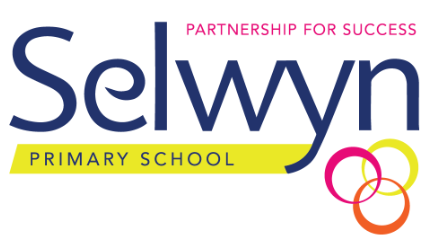Mathematics at Selwyn
Curriculum intent
Maths is a skill we use on a daily basis and is an essential part of everyday life. At Selwyn, we endeavour to ensure that children develop a sense of curiosity, enjoyment and enthusiasm for maths that will stay with them throughout their lives and empower them in future life.
The aim of the maths curriculum is to enable our children to become successful mathematicians: learners that enjoy and achieve in mathematics and develop a real interest in the subject.
Success for all is about ensuring no learner is left behind, as well as ensuring more learners excel. We believe all can achieve, and in a commitment to providing learning experiences that allow for this is essential to achieve success for all. With this confidence, they can apply their knowledge to reason and problem solve with resilience and independence.

Maths teaching in our Nursery.

A broad and balanced curriculum is taught across all areas of maths and it is organised to enable children to make rich connections between mathematical ideas. Each topic has a clear learning journey where children build and deepen their knowledge and skills through a sequence of carefully planned lessons.

- Annual overviews are in distinct domains but organised to enable children to make rich connections across mathematical ideas to develop fluency, mathematical reasoning and competence in solving problems.
- Topic overviews are planned to ensure a broad and balanced curriculum is taught across all areas of maths
- Daily maths lessons include fluency, reasoning and problem solving activities to provide opportunities for intelligent practice and appropriate challenge for all groups of learners.
- Concrete manipulatives and pictorial representations are used to support conceptual understanding and make explicit links.
- Weekly practical maths lessons in Years 1, 2 and 3 allow children to learn through investigating, exploring, talking, problem-solving.
- Weekly arithmetic lessons in Years 4, 5 and 6 support their conceptual understanding of arithmetic and flexibility to tackle mathematical problems in different ways.
- Additional times tables lessons from Years 1 – 6 ensure that children are given the opportunity to see, explore and understand the mathematical structures and patterns that lie beneath thus improving instant recall.
- Weekly homework tasks give children the opportunity to consolidate new learning and build on previously taught skills
- Children are assessed on a termly basis
- Half-termly meetings are carried out with each group to discuss progress and further action where appropriate.
- Times tables assessments are carried out at the beginning and end of each term to support practice and application of pupils’ growing knowledge of multiplication facts
- End of topic assessments are carried out to assess progress through the maths journey
- Early Years’ overviews have a strong focus on counting and cardinality and they focus on a ‘Number of the Week’ in addition to their daily maths lessons.
Maths for all year groups
Maths meetings for years 1-6.

Additional maths sessions and enrichment
As well as daily maths lessons, there is focused teaching time set aside in Years 1-6 to reinforce the learning of times tables and mental arithmetic. The children are given the opportunity to see, explore and understand the mathematical structures and patterns that lie beneath thus improving rapid recall of key mathematical facts. Assessments at the beginning and end of term help us to document the progress of multiplication facts throughout the year.



